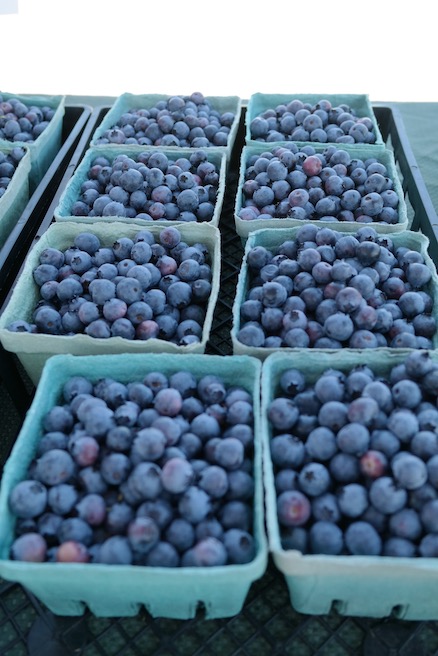
This story appeared in the 2021 summer issue of The Maine Organic Farmer & Gardener in response to the theme “Neighbors.”
I moved to Twitchell Hill Community in 1976. It was started by folks who were tired of being beaten up in the anti-war protests in the Boston area. They wanted to establish an intentional community that lived more closely with the natural abundance of the earth and bought the 70 acres that we still own, camping on it the summer of 1971 while building the 50-by-50 three-story house that I later moved into. The land had 14 to 15 acres of wild blueberries that had been maintained through conventional agricultural practices that included spraying various poisons on the fields. This did not fit with their ideals, and they decided to stop the spraying – which essentially made them organic. When they found that the normal purchasers of wild blueberries would not accept the organic berries because of not passing the maggot tests, they collaborated with others who didn’t want to spray their wild blueberries and formed the Maine Organic Blueberry Growers Cooperative (the MOB). I immediately got involved in the organizing and marketing, as well as trying to figure out how to grow wild blueberries organically.
We found a dealer in sea worms who had a truck run the length of the Maine coast picking up worms and taking them to the Chelsea Market in Boston. The truck was never full, so we arranged to have the truck stop at various spots along its Downeast run and pick up blueberries on the way to drop them at the New England Federation of Cooperatives (NEFCO) warehouse at the market. NEFCO wanted organic berries so they weren’t concerned about maggot counts, which were never bad, and worked to get a top price for our berries. This lasted into the 80s until too many growers were overwhelmed with weed problems that made organic growing too difficult to maintain. Thus, we could not keep up a large and steady enough supply to work cooperatively.
Twitchell Hill was faced with so much tree growth that one often couldn’t see the rakers in the fields. Blueberries are a biennial crop, so the trees were 2-years-old during harvest. The University of Maine found that if anything taller than a blueberry plant was weed-whacked three times in the fallow field each summer, the trees would be defeated. That has made a huge difference for us: Now the fields have very few trees, and the other weed growth has been seriously diminished. I am able to mow the fields more often than burn them, and we can use a mechanical harvester with the reduction of weed growth. We were organic before MOFGA was certifying wild blueberries and have been certified by MOFGA since they began the wild blueberry certification. This past fall after leaf drop, I was stunned by the beauty of the fields as the different clones of berry plants have different stem colors: yellows, greens, reds and purples. With the sun shining gloriously on the field, it was an impressionistic splendor.
Doug Van Horn
Montville, Maine
